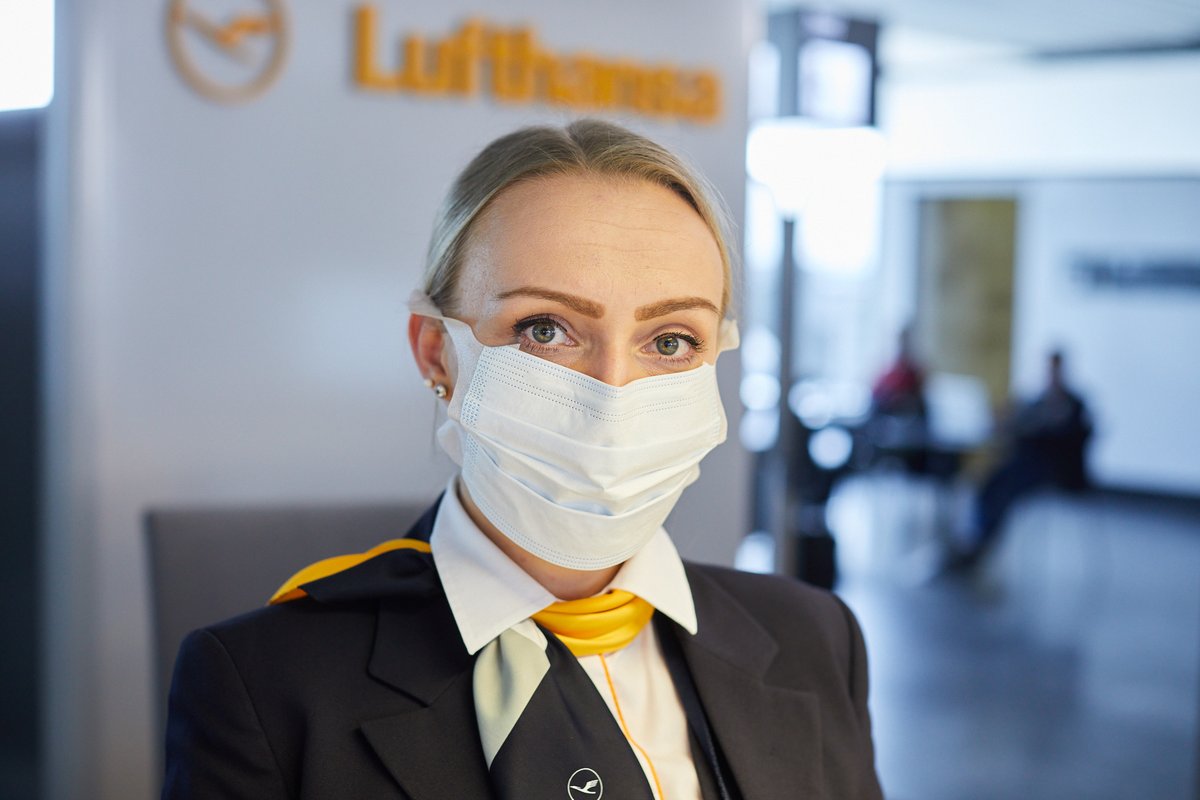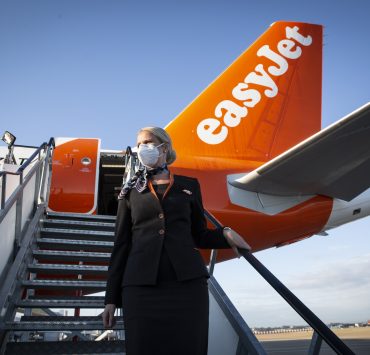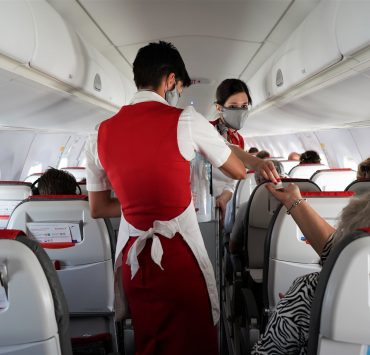
Lufthansa will require all of its passengers to wear a medical-grade face mask starting February 1, bringing the carrier in line with new rules recently approved by Germany’s federal government over fears that fabric face coverings don’t offer adequate protection against highly-transmissible new variants of the novel Coronavirus.
Passengers will need to wear a medical-grade surgical mask as a minimum and anyone caught wearing a fabric face covering will be denied boarding. Ideally, passengers should seek to wear an FFP2 mask or even an N95 certified mask according to Lufthansa. Masks with a valve are not permitted.
What’s the difference between a surgical face mask and an FFP2 face mask?
A disposable surgical face mask is made out of three separate layers and can offer up to 98 per cent bacterial filtration. They are lightweight, relatively comfortable and easy to breath through. Surgical face masks are also cheap and, unlike at the start of the pandemic, easy to get hold.
An FFP2 mask (sometimes known as KN95) is made out of five separate layers and offers high levels of filtration, helping to protect the wearer from airborne particles. They offer a tighter fit than surgical face masks but still come with earloop fittings which means the seal isn’t completely tight.
An N95 mask is very similar to an FFP2 mask but is fitted with a band around the back of the head. This allows for a much tighter seal against the skin and therefore an even higher level of protection. N95 masks are, however, still in short supply in some regions and are much more expensive.
The decision to ban reusable cloth face coverings follows on from new thinking about how and why members of the public wear masks. At the start of the pandemic, fabric masks were encouraged because medical-grade alternatives were in short supply and the limited stock that was available had to be prioritised for health workers battling the pandemic on the frontline.
While experts feared that reusable masks did little to protect the user, cloth masks could prevent the wearer from spreading infected airborne particles.
New variants of the virus, however, have put governments on high alert and a couple of days ago, German Chancellor Angela Merkel announced tougher mask rules that will require German’s to wear a medical-grade mask on public transport and in shops. The German government hopes the rules will help protect the wearer as much as they help protect others
Germany is the first country to require medical-grade protection but Austria is set to follow suit in the coming days and France is also said to considering similar rules.
Both France and Italy already require airlines passengers to wear medical-grade disposable face masks.
Like many airlines, Lufthansa first imposed face-covering rules last May but was fairly relaxed about the type of mask that passengers wore. The German flag carrier did, however, move to clamp down on passengers who claimed they were exempt from wearing a face-covering because of a medical condition.
Anyone with a genuine exemption must now get a signed doctors certificate and take a negative COVID-19 test within 48-hours of travel if they wish to fly with Lufthansa. Passengers who refuse to comply face being banned but unlike U.S. airlines, European carriers have declined to disclose the number of passengers currently on no-fly lists for face mask non-compliance.
Mateusz Maszczynski honed his skills as an international flight attendant at the most prominent airline in the Middle East and has been flying throughout the COVID-19 pandemic for a well-known European airline. Matt is passionate about the aviation industry and has become an expert in passenger experience and human-centric stories. Always keeping an ear close to the ground, Matt's industry insights, analysis and news coverage is frequently relied upon by some of the biggest names in journalism.









